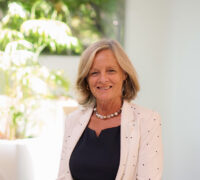
Good gut: Why intuition is still essential in a world of AI
Being able to use your gut instinct remains vital for effective decision-making in a data-driven world. Here’s how to use and develop your “sixth sense”....

by Alyson Meister, Amanda Sinclair Published June 22, 2021 in Brain Circuits • 3 min read
Our unrelenting inner critic can make our lives hell. That overly negative voice can contribute to untold stress and sleepless nights, which can then adversely impact work performance. During the pandemic, this voice may have become even more harsh: do more, push harder, keep productive, hold it together.
Here are four strategies that that can help to tame your inner critic.
Many people, including highly successful leaders, have an internal critic that becomes louder as they move into the leadership spotlight. The first step when you hear that critic is to recognise it as normal or human. It’s not weird to experience self-doubt and it doesn’t make you a failure either.
Strategies to achieve this:
The origins of our inner critic might come from a parent, teacher or role model or may even have taken up residence in childhood. Identifying when this voice was born, and who it represents, can help you let the voice go and replace it with more empowering narratives.
Strategies to achieve this:
Neuroscience research confirms that most of us ruminate too much, which is detrimental for our mental health and well-being. Practicing becoming more skilled at noticing rumination and consciously choosing not to keep thinking those thoughts can weaken the power of our internal critic.
Strategies to achieve this:
We can choose how much of our emotional and mental energy we put into firming up the borders and upholding the needs of the self. What’s more, our sense of self is open to learning and growth. Detaching the situation, from yourself as an individual, can enable you to be more open to others and non-defensive.
Strategies to achieve this:

Hilti Professor of Leadership and Dean of Degree Programs
Alyson Meister is Hilti Professor of Leadership and Dean of Degree Programs at IMD. Specializing in the development of globally oriented, adaptive, and inclusive organizations, she has worked with executives, teams, and organizations from professional services to industrial goods and technology. She also serves as co-chair of One Mind at Work’s Scientific Advisory Committee, with a focus on advancing mental health in the workplace. Follow her on Twitter: @alymeister.

Professorial fellow at Melbourne Business School
Amanda Sinclair is an author, researcher and teacher in leadership, change, gender, and diversity. A professorial fellow at Melbourne Business School, her books include Leadership for the Disillusioned, Leading Mindfully, and, with Christine Nixon, Women Leading. Amanda is also a yoga and meditation teacher and much of her teaching and coaching focuses on introducing insights and practices from mindfulness to leading well.

January 29, 2026 • by Heather Cairns-Lee, Eugene Sadler-Smith in Brain Circuits
Being able to use your gut instinct remains vital for effective decision-making in a data-driven world. Here’s how to use and develop your “sixth sense”....

January 28, 2026 • by Alyson Meister in Brain Circuits
Progressing to senior leadership begins by upgrading your mindset. Here’s how to get started. ...

January 27, 2026 in Brain Circuits
As Standard Chartered’s Chief Strategy and Talent Officer, Tanuj Kapilashrami, oversaw a fundamental workforce transformation from a jobs-based to a skills-powered model. Here she shares five key steps to make the transition....

January 23, 2026 • by Julia Binder in Brain Circuits
Myths abound when it comes to corporate sustainability. Can you tell fact from fiction? Test your knowledge on the common misconceptions here....
Explore first person business intelligence from top minds curated for a global executive audience